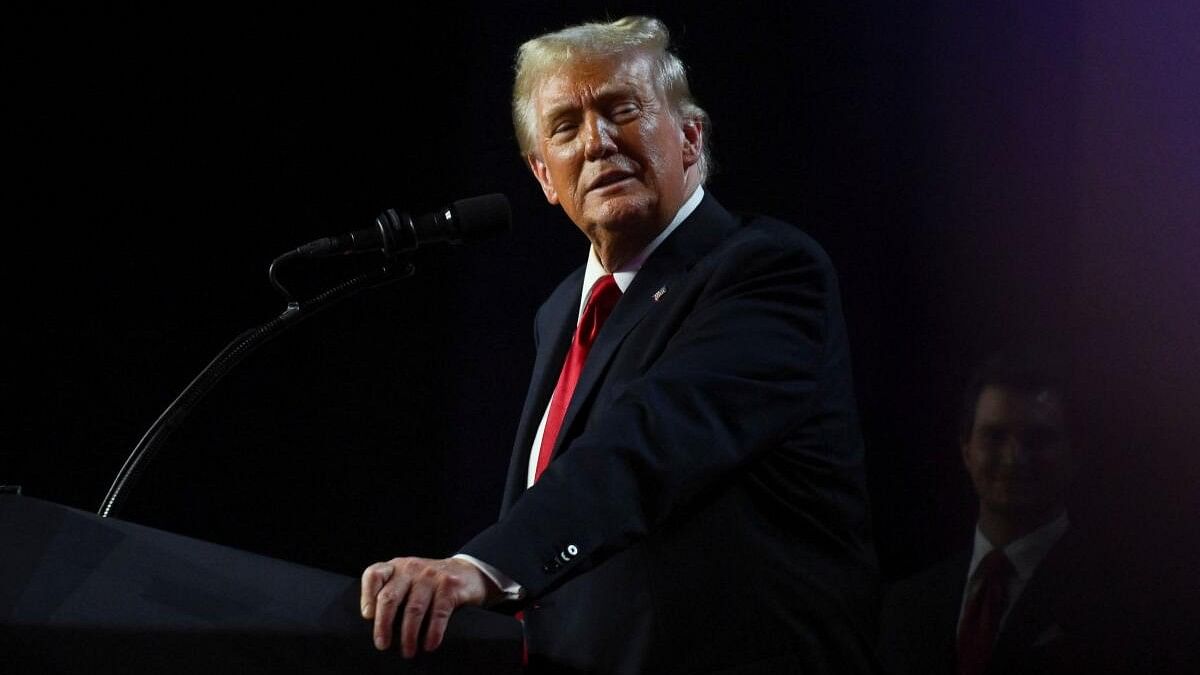
US President-elect Donald Trump.
Credit: Reuters Photo
In a close and the most consequential race in modern America, Republican presidential candidate Donald Trump has created history, becoming the second ever former president, and first Republican, to win a non-consecutive second term after Grover Cleveland in 1892.
Trump’s victory is a case study in upending the notions of an ideal liberal democracy gift-wrapped in the American dream that the US and the West zealously sold to the rest of the world to emulate.
When Trump becomes the 47th President of the Unted States, what lies shattered is the cultivated understanding that the free-market-dictated, immigrant-friendly US is poised to lead the free-world both as a domineering superpower, helping the allies and being tough on authoritarian regimes around the world. At stake is the vision of the US being a net security provider for its allies and friends, and interventionists anywhere in the world when their interests are at stake.
However, Trump being elected to power shows that that’s not the way American voters think.
The US is a leading military and economic power. But the pressing concerns of the American voters didn't have much to do with the US claiming its global leadership role and being the beacon of blemish-less Western notions of democratic credentials. Their concerns were immediate — economy and immigration. They found Trump worthy of fulfilling their hopes with his ‘Make America Great Again’, or ‘America First’ campaign.
It also showed a general trend of global democracies being on a churn; i.e. the voters weighing their multiple identities and issues while making electoral choices. It's no longer one identity or one issue that dominates an area or even an individual.
And these political shifts happen more quickly than they used to take place in the past. For example, Iowa has undergone a seismic shift to the Right and towards Trump in recent years, leaving no doubt that by nearly every measure. Perhaps, no state has veered further from its past than the Hawkeye State. In 2008, it stood firmly behind Barack Obama, handing him a nearly 10-point victory. Just 12 years later, it delivered an emphatic, more-than-eight-point win for Trump.
The state’s political landscape has been irrevocably transformed: Republicans now dominate both the legislature and the governor’s palace, while the office of the attorney general is firmly in GOP hands, with state's agricultural division being known as the Farm and Freedom Division — a direct challenge to the federal government, in line with Trump’s populist crusade.
Similarly, the soaring cost of housing and inflation in Arizona have profoundly influenced voters’ views on the US economy, making them think they were better off in the Trump era. That led to a surge in support for Trump. Arizona is a major swing state that Trump narrowly won in 2016 but lost to Biden in 2020.
The voters didn’t seem much about the personal attack against Trump. Nor his criminal convictions, pending indictments, or his continuous incendiary rhetoric remarks mattered to them, because Trump could convert successfully this election into an election of existential angst and an opportunity for the people to protect their jobs, land, save their economy, and their faith. Many streamed onto the streets wearing T-shirts that screamed ‘Jesus is my saviour and Trump is my President’.
Trump could effectively and efficiently conflate politics with religion, constantly employing Christian iconography in his speeches. That helped him get elements of divinity associated with him among the people of faith in the US, besides reinforcing his image among the white population. His speeches were performative, even theatrical.
His campaign employed whatever approach it took to win votes and people loved the spectacle at his rallies. Though many found Trump’s unreformed or even hegemonic masculinity despising, it proved to be a convincing allure for men in an election where Trump was pitted against the first black woman candidate. The way Republicans won senate and the Congress, the dominance of Trump is unquestionable in the new America that supports him comprehensively to make it great again.
(Jayanth Jacob, a foreign policy commentator, has covered the Ministry of External Affairs for over two decades. X: @jayanthjacob)